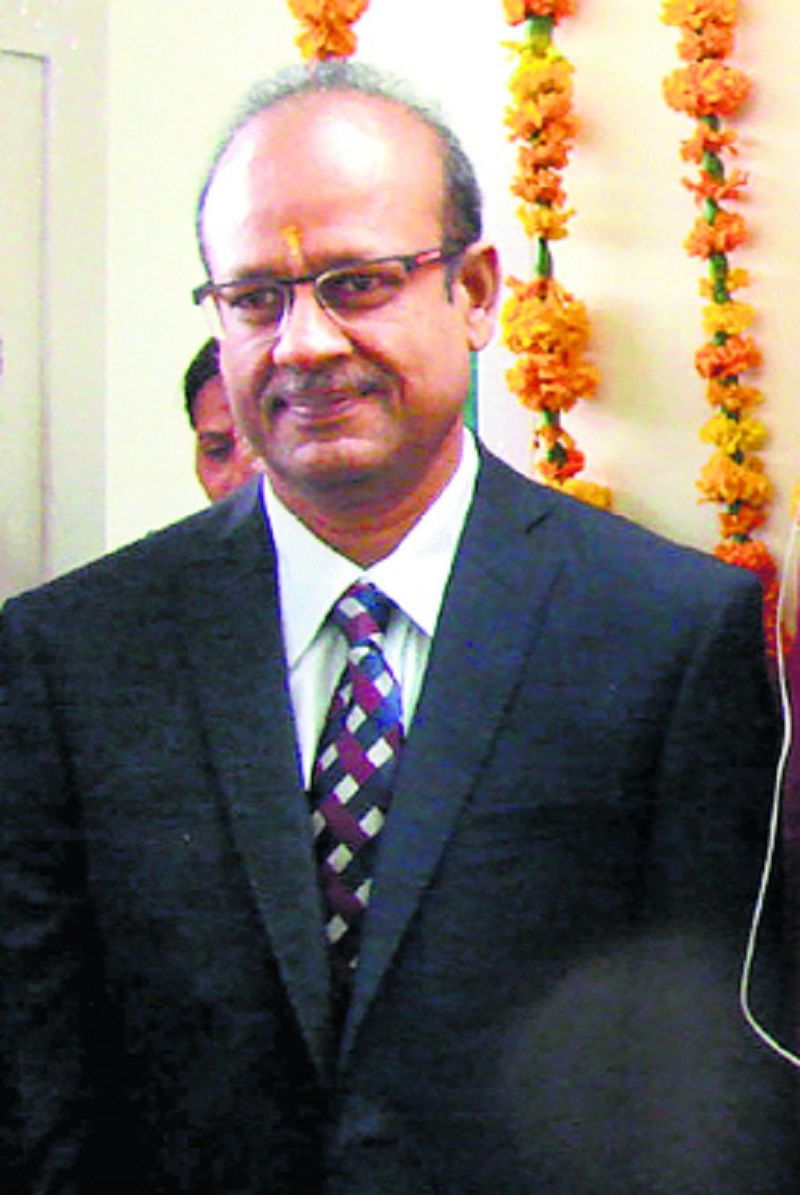Rajesh Bindal Age, Wife, Children, Family, Biography & More
Quick Info→
Hometown: Ambala, Haryana
Age: 62 Years
| Bio/Wiki | |
|---|---|
| Profession | Judge of Supreme Court of India |
| Physical Stats & More | |
| Height (approx.) | in centimeters- 165 cm in meters- 1.65 m in feet & inches- 5’ 5” |
| Eye Colour | Black |
| Hair Colour | Semi-bald |
| Personal Life | |
| Date of Birth | 16 April 1961 (Sunday) |
| Age (as of 2023) | 62 Years |
| Birthplace | Ambala, Haryana |
| Zodiac sign | Aries |
| Nationality | Indian |
| Hometown | Ambala, Haryana |
| School | S A Jain Senior Model School, Ambala |
| College/University | • Panjab University, Chandigarh • Kurukshetra University, Thanesar, Haryana |
| Educational Qualification(s) [1]Lex Insider | • B. Com • LLB (1985) |
| Relationships & More | |
| Marital Status | Not Known |
| Family | |
| Wife/Spouse | Not Known |

Some Lesser Known Facts About Rajesh Bindal
- Rajesh Bindal is an Indian judge known for being appointed as a judge of the Supreme Court on 10 February 2023. He served as the Chief Justice of Allahabad High Court, acting Chief Justice of Jammu and Kashmir High Court, and acting Chief Justice of the Calcutta High Court.
- He started working at the High Court of Punjab and Haryana on 14 September 1985. He joined the Central Administrative Tribunal in 1992. He represented Chandigarh Administration before the Central Administrative Tribunal and Punjab and Haryana regions of the Employees Provident Fund Organization before the High Court and Central Administrative Tribunal from 1992 to 2006. He practised in Taxation, Constitutional, Civil and Service cases. He specialized in taxation matters. He worked as standing counsel for I.T. Department and various Central and State Government organisations.
- While working at the High Court of Punjab and Haryana, he was associated with the Satluj Yamuna Water dispute between Haryana and Punjab. He represented Haryana before Hon’ble Eradi Tribunal and Hon’ble the Supreme Court.
- On 22 March 2006, he was appointed as a permanent judge of the Punjab and Haryana High Court. He was the chairman of the computer committee and arrears committee of the court.
- In 2006, his judgement Punjab Scheduled Caste and Backward Classes (Reservation in Services) Act along with justice B.S. Walia was highly appreciated. According to their judgement, they granted 20% of reservations in promotions for Scheduled Castes and Scheduled Tribes in C and D category government services and 14% in A and B category government services.
- In 2017, he was part of the bench which gave judgement on the petition challenging the Bar Council of India (BCI) rules (2006). The petition filed by lawyer Virender Pal Sharma said questioned the Supreme Court and High Courts addressed as ‘Your Honour’ and ‘Honourable Court’ whereas the term ‘Sir’ was used in subordinate courts and tribunals.
- In April 2018, when he was the chairman Ministry of Women and Child Development, he submitted a report on the Civil Aspects of the International Child Abduction Bill. He gave recommendations on the Protection of Children (Inter-Country Removal and Retention) Bill to the Ministry.
- Before his transfer to Jammu and Kashmir High Court, he worked on around 80,000 cases and was a part of various committees including the Computer Committee and Arrears Committee.
- On 26 October 2018, his name was recommended by the collegium to be transferred to the Madras High Court. He requested them to reconsider his transfer to a high court in north India. His reconsideration was rejected, but the request for an alternative transfer was accepted by the collegium. On 19 November 2018, he was appointed as the judge of the Jammu and Kashmir High Court, the common high court for the union territories of Ladakh and Jammu and Kashmir.
- In November 2018, he was the Chairman of the Committee that worked on framing Draft Rules for Electronic Evidence and submitted his report to Hon’ble the Supreme Court.
- In October 2019, he along with his bench stated that begging in Jammu and Kashmir was decriminalised. A petition was filed against the J&K Prevention of Beggary Act (1960) and Prevention of Beggary Rules (1967) by advocate Suhail Rashid Bhat who stated that anti-begging laws were “unconstitutional” and violated articles 14, 15, 20 and 21 of the Constitution.
- On 9 December 2020, he was appointed as the acting chief justice of the Jammu and Kashmir High Court by the then president Ram Nath Kovind.
- Before his appointment at Calcutta High Court, he was the chairman of the finance committee, building and infrastructure committee, information technology committee, state court management systems committee in the High Court and also Chairman of Jammu and Kashmir state legal service authority. He was also the chairman of the committee that focused on conducting assessments for the optimal use of technology by NALSA and the State Legal Services Authorities. He was also a member of the committee that worked on the existing framework of Lok Adalats and mediation. He was responsible for suggesting ways to improve the better application of the ADR mechanisms for the poor.
- On 5 January 2021, he was transferred to Calcutta High Court as a judge through a nomination from the CJI Sharad Arvind Bobde. tHE Ministry of Law and Justice ordered,
In exercise of the power conferred by clause (1) of Article 222 of the Constitution of India, the President, after consultation with the Chief Justice of India, is pleased to transfer Shri Justice Rajesh Bindal, Judge, Common High Court for the Union Territory of Jammu and Kashmir and Union Territory of Ladakh, as a Judge of the Calcutta High Court.”
- On 29 April 2021, he was appointed as the acting chief justice of the Calcutta High Court.
- On 11 October 2021, he took oath as Chief Justice of Allahabad High Court.
- He was removed as the acting chief justice of the Calcutta High Court when the Bar Council of West Bengal appealed to the CJI N. V. Ramana for the removal due to “interference in fair and impartial dispensation of justice” on 27 June 2021.
- In 2021, he addressed the ‘Full Court Welcome reference’ ceremony organized at Lucknow Bench of Allahabad High Court and said that there were pending cases in Allahabad High Court since 1974. Commenting on this, he said,
We all know that the Bar and the Bench have to work together, they are two wheels of the same chariot….. We will work together, and we will be able to serve the litigants in society.”
- He is number 2 in the All India seniority of High Court judges.
- According to a report, he is the seniormost Judge from Punjab and Haryana High Court.
- In June 2022, he visited Gitapress in Gorakhpur and embraced the Indian culture a lot. There, he met the Chief Minister of Uttar Pradesh Yogi Adityanath. On the occasion, he said that because Allahabad is the largest city, the number of pending cases in the state is also more, but the bar and bench were trying their best to solve the cases with the help of technology so that they could keep up with the trust people have on them.
- In December 2022, it was reported that Rajesh suspended an Allahabad court jamadar for receiving tips through Paytm UPI inside the court. It was reported that the worker had pasted the OR code on his uniform to receive money in form of Dakshina.
- On 10 February 2023, he was appointed as a judge to the Supreme Court of India along with Justice Aravind Kumar, Chief Justice of Gujarat High Court. Their names were recommended by the Supreme Court collegium on 31 January 2023. Before them, five other judges were appointed by the SC on 6 February 2023 including Rajasthan High Court Chief Justice Pankaj Mithal, Patna High Court Chief Justice Sanjay Karol, Manipur High Court Chief Justice PV Sanjay Kumar, Patna High Court judge Ahsanuddin Amanullah, and Allahabad High Court judge Manoj Misra.
References/Sources:









